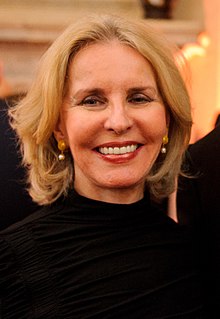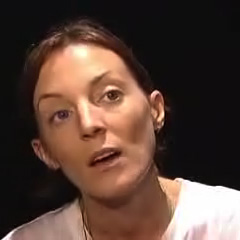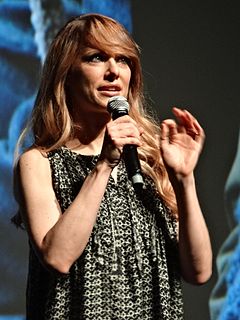A Quote by Sally Quinn
I think that obviously humans find it very difficult to believe that there is no there there. So they created these stories and myths to give their lives some meaning.
Related Quotes
I have a very difficult time believing that there is some being who is going to invite me into heaven or not on the basis of whether I wear a yarmulke or whether I have been sprinkled with water while someone said something. Some of the ritual is very beautiful, but I find it difficult to believe that it really has to do with God. I believe that dogma comes from man.
I find it very difficult to relate to India's new middle class. This very patriotic and neoliberal group that mixes religion and economics together. I find them very irksome. Very difficult to like. They are privileged, but they don't want to talk about their privilege. It's difficult to find poetry amongst these people. Some sort of hidden spirit of beauty.
Our stories are all stories of searching. We search for a good self to be and for good work to do. We search to become human in a world that tempts us always to be less than human or looks to us to be more. We search to love and to be loved. And in a world where it is often hard to believe in much of anything, we search to believe in something holy and beautiful and life-transcending that will give meaning and purpose to the lives we live.
A myth is a way of making sense in a senseless world. Myths are narrative patterns that give significance to our existence. Whether the meaning of existence is only what we put into life by our own individual fortitude, as Sartre would hold, or whether there is a meaning we need to discover, as Kierkegaard would state, the result is the same: myths are our way of finding this meaning and significance.
The Nigerian storyteller Ben Okri says that ‘In a fractured age, when cynicism is god, here is a possible heresy: we live by stories, we also live in them. One way or another we are living the stories planted in us early or along the way, or we are also living the stories we planted — knowingly or unknowingly — in ourselves. We live stories that either give our lives meaning or negate it with meaninglessness. If we change the stories we live by, quite possibly we change our lives.’
Life in itself has no meaning. Life is an opportunity to create meaning. Meaning has not to be discovered; it has to be created. You will find meaning only if you create it. It is not lying there somewhere behind the bushes, so you can go and you search a little bit and find it. It is not there like a rock that you will find. It is a poetry to be composed, it is a song to be sung, it is a dance to be danced.
I now believe that evolution, or deevolution, never ends short of death, that no society has ever achieved an absolute pinnacle, that all humans are not created equal. In fact, I believe attempts to create some abstract equalization create a morass of injustices that rebound on the equalizers. Equal justice and equal opportunity are ideals we should seek, but we should recognize that humans administer the ideals and that humans do not have equal ability.
Myths are about the human struggle to deal with the great passages of time and life--birth, death, marriage, the transitions from childhood to adulthood to old age. They meet a need in the psychological or spiritual nature of humans that has absolutely nothing to do with science. To try to turn a myth into a science, or a science into a myth, is an insult to myths, an insult to religion, and an insult to science. In attempting to do this, creationists have missed the significance, meaning, and sublime nature of myths. They took a beautiful story of creation and re-creation and ruined it.

































